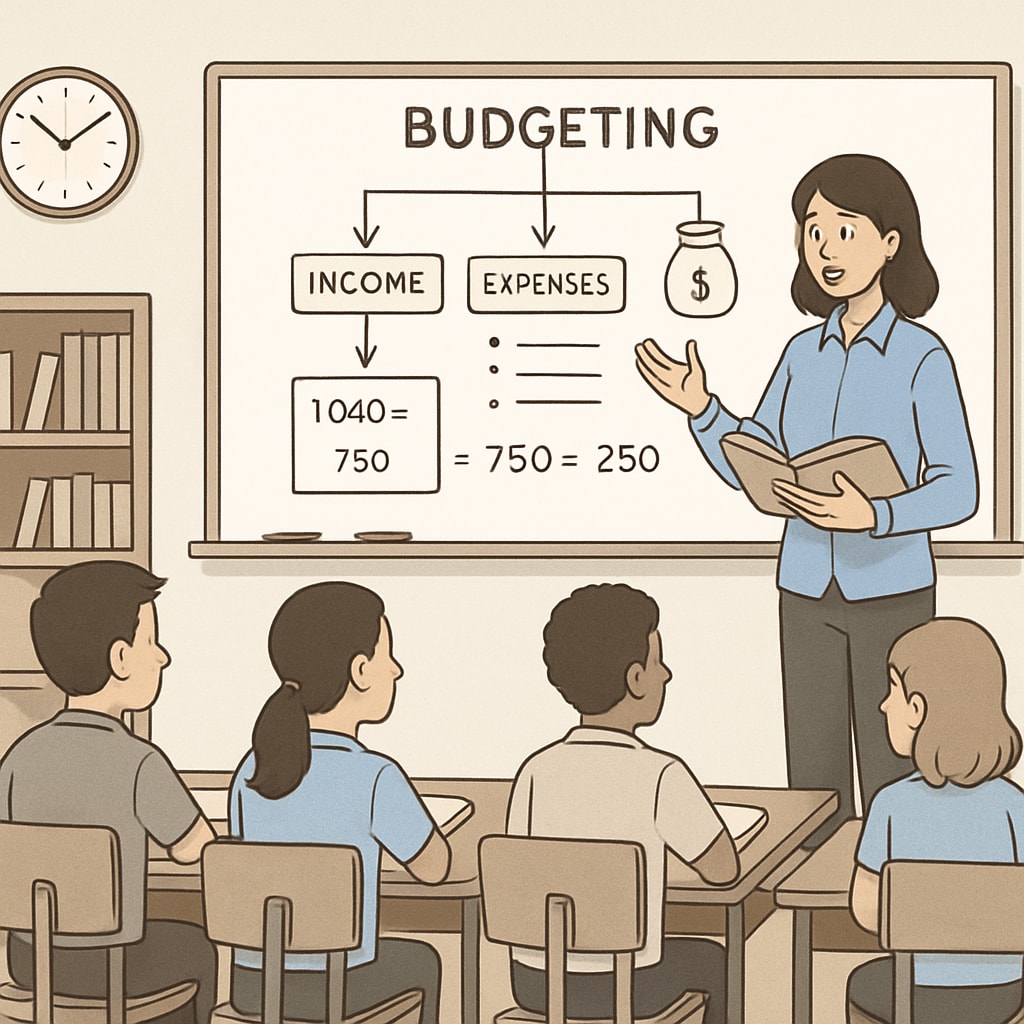In today’s fast-paced world, the importance of effective financial literacy and time management cannot be overstated. Yet, despite their significance as life skills, they are often absent from school curricula. While academic subjects like math, science, and history dominate classroom instruction, practical abilities like managing finances and optimizing time are left to be learned through trial and error. Incorporating these essential skills into K12 education could dramatically enhance students’ preparedness for adulthood, equipping them to navigate life’s challenges with greater confidence and competence.
Why Financial Literacy Matters in Modern Education
Financial literacy—the ability to understand and effectively manage personal finances—is a cornerstone of independent living. Without it, individuals may struggle with budgeting, saving, investing, and avoiding debt. Despite its importance, many students graduate high school with limited knowledge of essential financial concepts like compound interest, credit scores, and retirement planning.
For example, according to a study by the National Endowment for Financial Education (NEFE), only 24% of millennials demonstrate basic financial literacy. This lack of education contributes to widespread financial insecurity, with many young adults falling into debt traps and struggling to make informed economic decisions.
- Teaching students how to create a budget can help them balance expenses and savings.
- Introducing the basics of investing can empower them to grow their wealth over time.
- Providing lessons on credit management can prevent common pitfalls like excessive debt.

The Overlooked Skill: Time Management
Time management is another critical yet overlooked area in education. Students often juggle multiple responsibilities, including academics, extracurricular activities, and personal hobbies. Without proper time management skills, they may find themselves overwhelmed, leading to stress and reduced productivity.
Learning how to prioritize tasks, set realistic goals, and allocate time effectively can have lifelong benefits. For example, successful professionals frequently cite time management as a key factor in achieving their career goals. According to research published by Psychology Today (Psychology Today), individuals who manage their time well are more likely to experience higher levels of job satisfaction and lower stress.
- Time-blocking techniques can help students focus on specific tasks without distractions.
- Goal-setting exercises can teach them to break large projects into manageable steps.
- Understanding the importance of deadlines can instill discipline and accountability.

Integrating Financial Literacy and Time Management into School Curricula
The inclusion of financial literacy and time management in school curricula requires a systematic approach. Educators and policymakers must collaborate to develop engaging and practical lessons that resonate with students. Here are some strategies for implementation:
- Create dedicated courses: Introduce standalone classes that focus exclusively on financial literacy and time management.
- Embed skills in existing subjects: Incorporate these topics into math or social studies lessons to provide real-world context.
- Leverage technology: Utilize apps and online tools to teach budgeting, time-blocking, and goal-setting interactively.
- Invite experts: Host guest lectures from financial advisors or productivity coaches to inspire students.
By prioritizing these skills in education, schools can empower students to take control of their futures, both financially and personally. As a result, they will leave the classroom better equipped to lead fulfilling and successful lives.
Conclusion: Preparing Students for Life Beyond School
Financial literacy and time management are not just practical skills—they are survival tools. The absence of these subjects in most school curricula leaves students ill-prepared for the realities of adulthood. By integrating them into K12 education, we can address this gap and ensure that future generations are equipped to thrive in an increasingly complex world.
Incorporating financial literacy and time management is not merely an educational reform; it is an investment in the well-being and success of students. As schools evolve to meet the demands of modern society, these life skills must take center stage.
Readability guidance: Use short, focused paragraphs and include lists to summarize key points. Employ transitions such as “for example,” “in addition,” and “as a result” to improve flow. Keep passive voice usage minimal and ensure sentences remain concise and clear.


